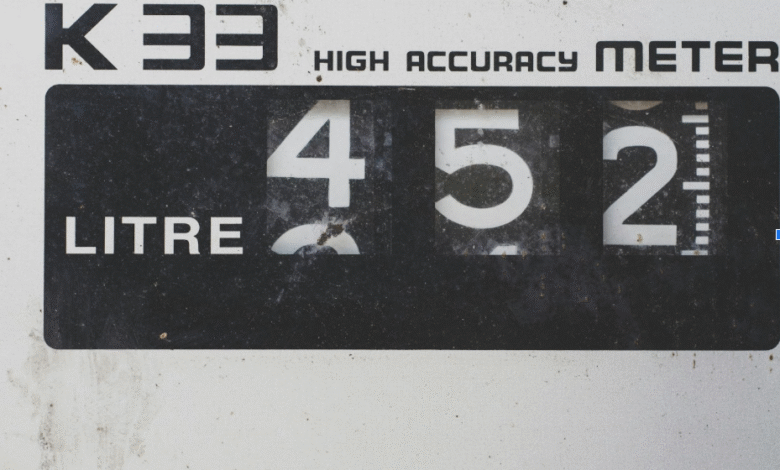Why Every Business Needs a Reliable Age Verification System

In the contemporary high-speed digital economy, companies are faced with an environment in which online communication is increasingly at an all-time high. As e-commerce, gaming, social media platforms, and digital services continue to grow and proliferate around the world, the age verification of users has become not only a regulatory necessity but also a critical security measure to protect the brand reputation, compliance, and customer confidence. An effective age verification system is no longer a luxury; it has become a necessity to businesses in an age restricted business.
The Knowledge of Age Verification Systems.
An age verification system is a digital system that verifies user age based on multiple approaches, which may include document verification, Biometric verification, cross-referencing the database, or identity verification using AI. These systems will provide assurance that the individuals seeking restricted goods or services, e.g. alcohol, tobacco, online gaming, adult content or even financial services, are of the appropriate age.
Compared to manual checks that are subject to human error or fraud cases, modern age verification systems are computer-controlled, secure, and can be scaled. They do not only facilitate compliance, but also provide a smoother customer experience through a quick and accurate validation of identities.
The importance of age verification in Businesses:
1. Regulatory Compliance
Most of the industries have stringent legislation that does not allow selling or delivering the services to minors. As an illustration, the operators of online gambling are expected to adhere to laws of responsible gambling and the e-commerce platforms that sell alcohol or tobacco products are legally bound to check the age of customers. Failure to comply may lead to high fines, suspension of license and reputational losses. A well-developed age verification system will see businesses comply with these regulatory requirements without any hustle.
2. Securing Vulnerable Groups.
Digital age verification is not merely about compliance, but a matter of protection of vulnerable persons. Unless age restrictions are strong, children and teenagers can be exposed to harmful or addictive products. Implementing effective verification software, companies show their social responsibility and help underage users to avoid the risks of gambling addiction, exposure to inappropriate materials, or misuse of financial services.
3. Building Customer Trust
Customers today value transparency and accountability. A business that acts to identify age in a responsible manner will develop trust to the audience. A safe system will assure the customers that the company cares about safety, privacy, and compliance. This trust is translated into a better customer relationship and enhanced brand loyalty within the competitive industries.
4. Less Fraud and Chargebacks.
Frauds are also related to false identities or underage minors who lie to get access to the restricted services. Businesses may suffer losses of money and chargebacks due to these cases. A verification system using automated age check mitigates such risks, because customer information is authenticated by comparing it with trusted databases and documents issued by the government, and thus limits costs associated with fraud.
5. Enhancing Brand Reputation
In the digital era, reputational damage spreads faster than ever before. One case of minors getting access to restricted goods or services can make a brand image look bad. Through effective verification, companies ensure that their reputation is safeguarded and they appear as accountable market leaders.
See also: Techyhittools.org: A New Resource for Tech Enthusiasts?
Features of a Reliable Age Verification System
The age verification solutions are not equal. A really trusted system must have:
- Accuracy and Speed: Swift verification that does not compromise accuracy.
- Multi-Layered Verification: Combining document checks, biometrics, and database validation.
- Compliance in Data Privacy: Compliance with data protection regulations such as GDPR and CCPA.
- Scalability: Capacity to deal with a large amount of transaction as the business expands.
- User-Friendly Experience: Smooth integration that does not frustrate the customers when they are onboarding.
Industries, which take advantage of age verification.
- E-commerce: Web-based shops offering alcohol, tobacco or vaping items.
- Gaming & Gambling: Casinos, sports betting and online gaming websites.
- Streaming & Entertainment: Websites that provide content of adult nature.
- Financial Services: Credit providers and digital wallets which have an age limit.
- Healthcare & Pharmacies: Internet-based pharmacies that sell prescription medicine or limited medicines.
The Future of Age Verification
In the time of AI, machine learning and biometric technology, age verification systems are becoming sophisticated and tough to hack. The next-generation systems might be utilized on the basis of face recognition in real time, identity management via blockchain, and worldwide databases of verification. Any business that implements these technologies at an early stage will never be left behind but will also have a competitive advantage in being safe and trusted by customers.
Conclusion
An efficient age verification mechanism is no longer a regulatory check-off box, it is a business necessity. It makes sure there is compliance, builds protection around the vulnerable, enhances trust and preserves the brand image. In the sectors where age restrictions matter, companies investing in high quality verification solutions are not only fulfilling the legal requirements but also are posing as responsible and trustworthy leaders.
Simply put, age verification does not simply involve a box check, it involves creating a sustainable and ethical business model in the digital world.




